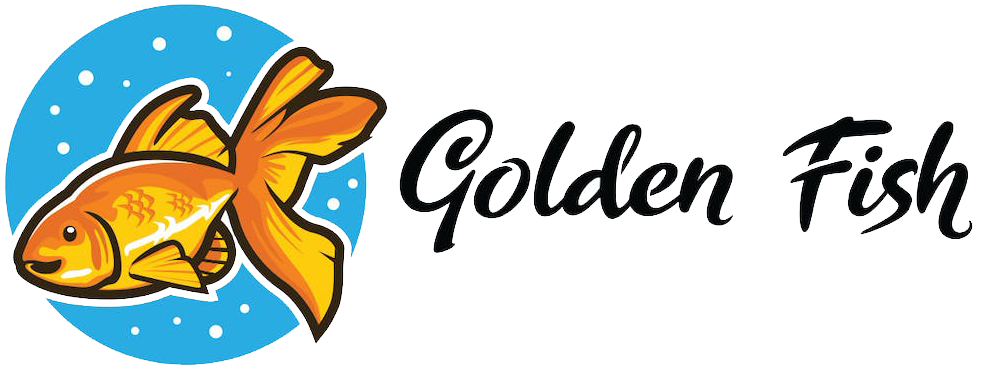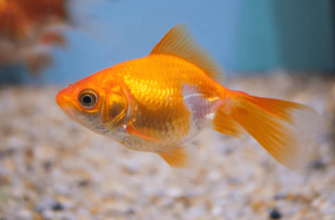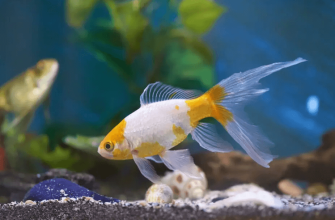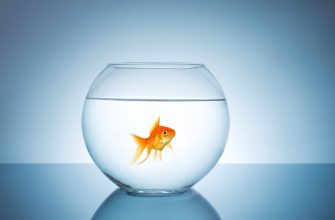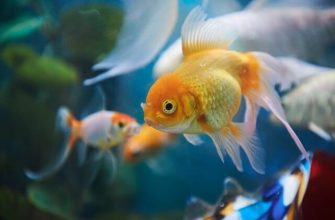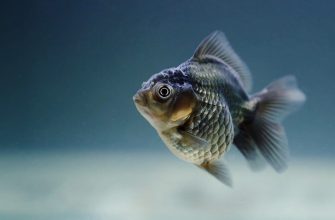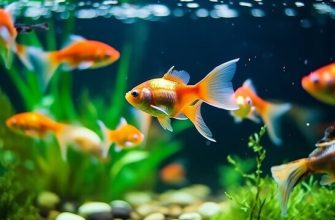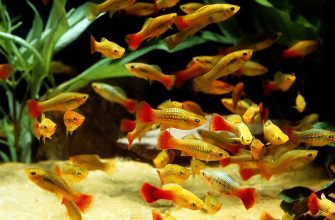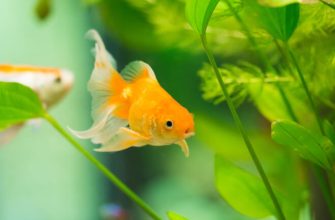Do goldfish hibernate? Contrary to popular belief, these delightful aquatic companions don’t hibernate in the traditional sense. They undergo a process called brumation. In brumation, their activity levels and metabolic rate decrease, due to the colder temperatures.
To help your goldfish during this time, there are few steps you can take:
- Gradually lower the water temperature over a few weeks. This should mirror natural changes.
- Furthermore, provide hiding spots for them to feel safe.
In terms of food, it’s best to reduce the amount given and choose easily digestible options like wheat germ-based pellets. Avoid overfeeding, as this can lead to health problems.
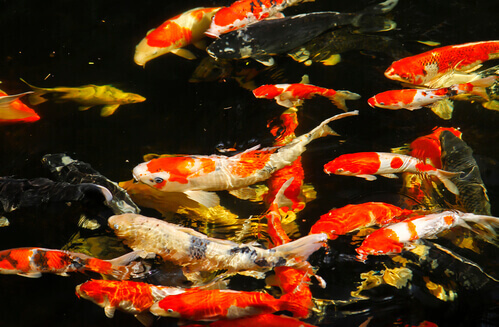
What is hibernation?
Hibernation is a state of extended sleep or dormancy that helps animals conserve energy during difficult weather or less food. In this state, their heart rate, metabolism, and body temperature drops drastically.
Goldfish don’t hibernate in the traditional sense. Unlike some amphibians and reptiles, they can’t survive in those conditions.
But, they have their own way to adapt to colder temperatures. When the water gets colder, they become less active and slow down their metabolic processes. This helps them save energy and adjust to the environment. Even though they look sluggish, it’s not true hibernation.
To take care of your goldfish during cooler months, there are some steps to take. Firstly, you must monitor and maintain an appropriate water temperature, using a heater or moving them indoors.
Secondly, providing sufficient nutrition is key. Goldfish have slower metabolisms in colder temps, so feed them nutrient-rich food less often. Don’t overfeed, because excess food will accumulate in the tank and mess up the water quality.
Finally, keep the environment clean. It’s important all year round, but especially when their immune systems are weaker. Regular water changes and filtration maintenance will keep your goldfish happy.
By understanding the needs of your goldfish in cooler months, you can make sure they stay healthy and continue to enjoy them in your home aquarium. Provide suitable water temperature, proper nutrition, and a clean environment for your goldfish’s continued well-being.
Do goldfish hibernate?
To understand if goldfish hibernate, delve into their natural habitat and behavior during winter. Explore the sub-sections: The natural habitat of goldfish and Behavior of goldfish in winter.
The natural habitat of goldfish
Goldfish are known for their brilliant colors and graceful swimming. To keep them healthy in captivity, we must understand their natural habitat. Here are five key points to consider:
- Temperature: Goldfish are from temperate climates, and do best in water between 50-75°F (10-24°C).
- Freshwater: Goldfish need clean, oxygen-rich water. They cannot survive in saltwater.
- Natural habitats: Goldfish live in ponds, lakes, and slow-moving rivers.
- Vegetation: Goldfish need aquatic plants for shelter, food, and oxygen. Plants also help maintain water quality.
- Seasonal changes: Goldfish respond to seasons with different behaviors. In cold months, they become less active and may even hibernate.
We can learn more about goldfish habitats by noting their labyrinth organ – allowing them to breathe air when oxygen is low. And, National Geographic found they have long-term memories for up to three months! Fascinating!
Behavior of goldfish in winter
Goldfish don’t hibernate, but their behavior changes during winter. The temperature drops and so does their metabolic rate. They may swim to deeper, warmer water. They need less food in winter because digestion slows. Give them small bites of high-quality food with nutrients.
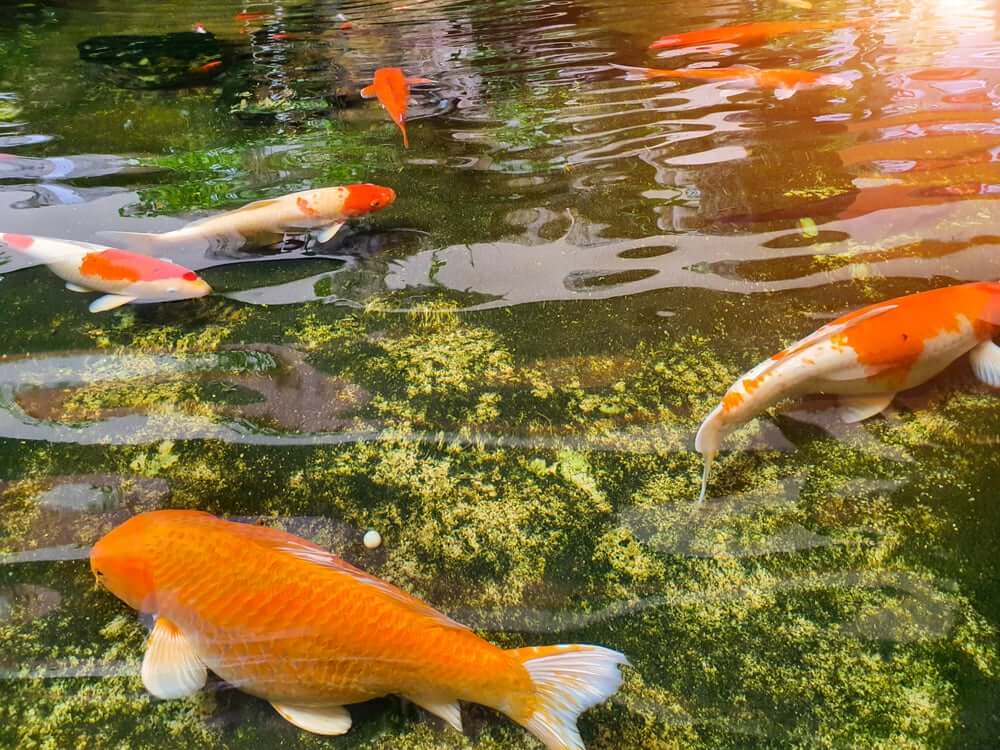
Water temperature must be managed. Use a heater or insulate the pond to keep it safe. A de-icer or aerator helps maintain oxygen levels. Check water quality and do partial water changes. Colder temperatures cause toxins to build up – vital for goldfish health!
Prepare your goldfish for hibernation
To prepare your goldfish for hibernation, adjust the water temperature, reduce the feeding schedule, and provide suitable shelter. These steps will ensure a smooth transition for your goldfish during the hibernation period.
Adjusting the water temperature
Here’s a 5-step guide to help you adjust the water temperature for your goldfish:
- Figure out the ideal temperature. Research the best water temperature for goldfish hibernation. Different breeds may need different temperatures, so it’s important to know what range is best for your fish.
- Lower the temp slowly. Gradually reduce the water temperature by a few degrees daily. Abrupt changes can stress your fish, so take it slow.
- Use a thermometer. Monitor the water temperature with a reliable thermometer. This’ll make sure the adjustments are precise and within the right range.
- Insulate the tank. Insulating the tank helps keep the temperature stable during winter. You can use Styrofoam or insulating blankets to cover the tank.
- Provide extra heating. If you live in cold weather, you may need an aquarium heater with a thermostat to regulate the temperature.
Every goldfish is unique. Observe their behavior and health during this process.
Light cycle during hibernation is also important. Providing them with the right lighting simulates the natural pattern and supports the hibernation process.
Amanda followed all the steps to adjust the water temperature for her goldfish, Finley. When spring came, Finley was healthy and had brighter colors.
Reducing the feeding schedule
- Gradually reduce the food given to your goldfish. Feed once or twice a day instead of their regular schedule.
- Monitor their weight and adjust portions.
- Avoid overfeeding; it can cause health issues during hibernation.
- Choose a high-quality food that gives essential nutrients.
To survive hibernation, maintain consistent water temperature and minimize stress. Reducing the schedule is just one part of creating an ideal environment for your goldfish.
Goldfish don’t actually hibernate but enter a state of dormancy. They slow down metabolism and conserve energy to survive cold water.
Experts at Goldfish Connection say reducing feeding schedule prevents digestion issues and helps water quality in winter months.
Providing suitable shelter
Creating a snug shelter is key for prepping your goldfish for hibernation. This way, they can save energy and get through winter safely. Give them places to hide, like stones and plants, to resemble their natural habitat. This gives a sense of safety and decreases stress. Also, use a heater or insulation to keep the water temp stable. Make sure there aren’t any dangerous substances or sharp edges that may hurt the fish. By doing this, your goldfish will be able to hibernate comfortably and wake up in good health in the spring.
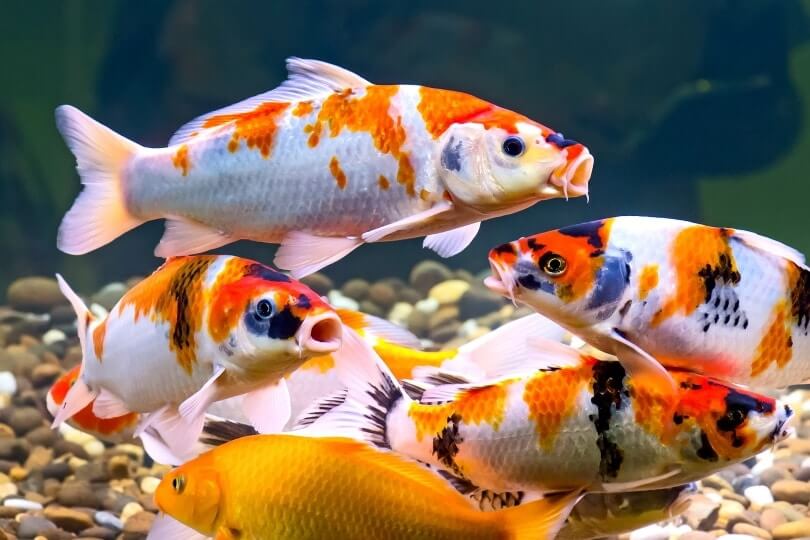
Monitoring your goldfish during hibernation
To monitor your goldfish during hibernation, with a focus on signs of hibernation vs. illness and maintaining water quality, helps ensure the well-being of your fish. By recognizing the signs and taking steps to maintain water conditions, you can provide a suitable environment for your goldfish throughout their hibernation period.
Signs of hibernation vs. illness
Is your goldfish hibernating or is it ill? Here’s how to tell the difference!
- Activity: Your goldie may appear lethargic and spend most of its time resting at the bottom of the tank.
- Eating: It may eat very little or not at all. You may notice it has become thinner.
- Breath & Heartbeat: Its breathing rate and heartbeat may be slower. You can look for subtle movements on its gills and abdomen.
Plus, its coloration may change. It could become paler or have white patches.
These signs help you identify if your fish is hibernating. An example story: A concerned owner thought his fish was ill. He took it to a vet who said it was just hibernating. So if you see your goldfish exhibiting these signs, it may just be entering its winter slumber.
Maintaining water quality
To keep your goldfish healthy, follow these steps:
- Regularly check water parameters such as pH levels, ammonia, nitrite, and nitrate concentrations.
- Do routine water changes to remove any waste or debris.
- Ensure proper filtration system functioning to eliminate contaminants.
- Avoid overfeeding.
- Monitor temperature fluctuations to prevent stress.
- Create a suitable environment by adding live plants to naturally filter the water.
- Provide adequate oxygenation in the tank. Use an air pump or provide sufficient surface agitation for gas exchange. This will maintain optimal oxygen levels.
By maintaining a stable and clean environment, you will ensure your goldfish’s physical health and create a serene and beautiful underwater habitat for them to enjoy!
Bringing your goldfish out of hibernation
To bring your goldfish out of hibernation, gradually increase water temperature and resume regular feeding and activity. By implementing these solutions, you will ensure a smooth transition for your goldfish and promote their health and well-being.
Gradually increasing water temperature
Goldfish hibernation is a natural winter event. During this time, their metabolism slows and they become less active. As spring arrives, it’s important to slowly increase the water temperature to bring your goldfish out of hibernation safely.
Here’s a 3-step guide:
- Turn up the heat. Adjust the aquarium heater by 1-2 degrees Fahrenheit daily until you reach the optimal temperature.
- Monitor carefully. Watch your fish behavior and make sure they’re comfortable with the gradual increase in temperature. If signs of stress show, slow the pace or seek help from an expert.
- Maintain consistency. Once the desired temp is reached, keep it consistent. Sudden changes can harm goldfish, so avoid drastic fluctuations.
Unique details:
- Ensure the new temperature is in their preferred range (usually 68-74°F).
- Different species may have different temperature requirements, so do research.
Pro Tip: Be patient and cautious when bringing your goldfish out of hibernation. Rushing can lead to stress and health issues. Take your time and adjust the water temperature gradually for a smooth transition.
Resuming regular feeding and activity
Make sure your goldfish comes out of hibernation in tip-top shape! Here’s what you can do:
- Feed them small meals frequently. This will prevent overfeeding and keep their digestive system healthy.
- Pay attention to how much they eat. Too much food is not good for them.
- Enhance the duration of light in their tank to mimic natural daylight. This will help with their activity levels.
- Check for any changes in behavior or appearance that could mean stress or illness. If you spot any, talk to a vet right away.
- Add toys, plants, and hiding spots to their tank to make it more interesting and stimulating.
Help your goldfish move out of hibernation to a happier and healthier life! Follow these steps to make their aquatic habitat enjoyable and fun.
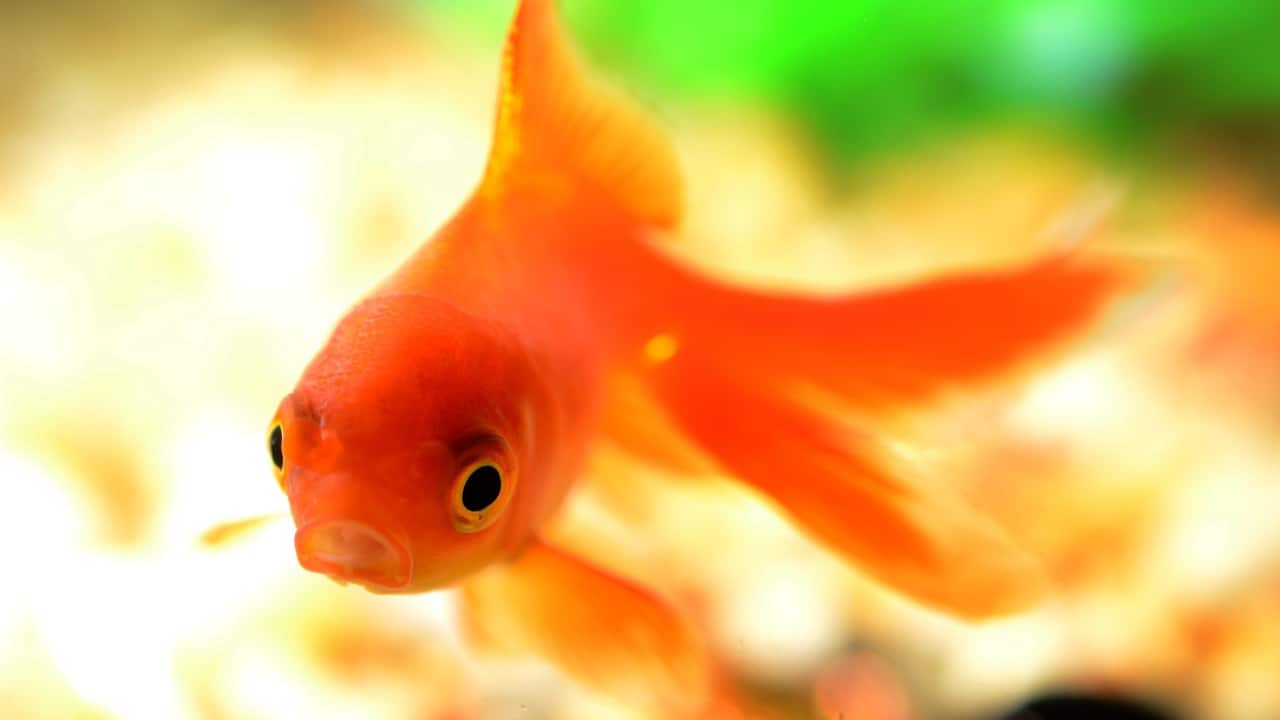
Conclusion
Goldfish don’t truly hibernate. They are cold-blooded. So, their metabolism slows in cold weather, leading to less activity.
In colder climates, their bodies can’t process food well. Thus, they eat less. During this time, their diet must be adjusted to get the nutrients they need, while still being able to digest it.
It’s important to take care of goldfish in winter. One pet owner left theirs outside on a very cold night. In the morning, they found the fish floating, motionless. They quickly brought it indoors and warmed up the water. To their joy, the fish revived after a few hours!
This story is a reminder of how goldfish react to cold temperatures. They don’t hibernate, but they need suitable conditions in winter to stay healthy and alive.
Frequently Asked Questions
1. Do goldfish hibernate?
No, goldfish do not hibernate. They are cold-blooded creatures and their metabolism slows down in colder temperatures, but they remain active throughout the year.
2. How do goldfish survive in winter?
Goldfish can survive in winter by staying in the deeper parts of ponds or bodies of water, where the temperature is relatively warmer. They may also slow down their activity level and eat less during this time.
3. Should I bring my goldfish indoors during winter?
It is not necessary to bring goldfish indoors during winter, as long as they have a suitable environment in their outdoor pond. However, extremely harsh winters or freezing conditions may require additional measures to protect them.
4. Can goldfish freeze and come back to life?
No, goldfish cannot freeze and come back to life. Although they can tolerate cold temperatures, being frozen solid would cause irreparable damage to their organs and tissues.
5. How can I ensure my goldfish’s survival during winter?
To ensure your goldfish’s survival during winter, provide a pond with a depth of at least two feet so that they can move to warmer water. Keep a hole in the ice to allow gas exchange and remove toxic gases. Also, avoid overfeeding them, as uneaten food can pollute the water.
6. Should I stop feeding my goldfish in winter?
Goldfish have a reduced appetite in colder temperatures, so it is best to decrease their food intake during winter. Feed them small amounts of easily digestible food specifically formulated for cold-water fish.
